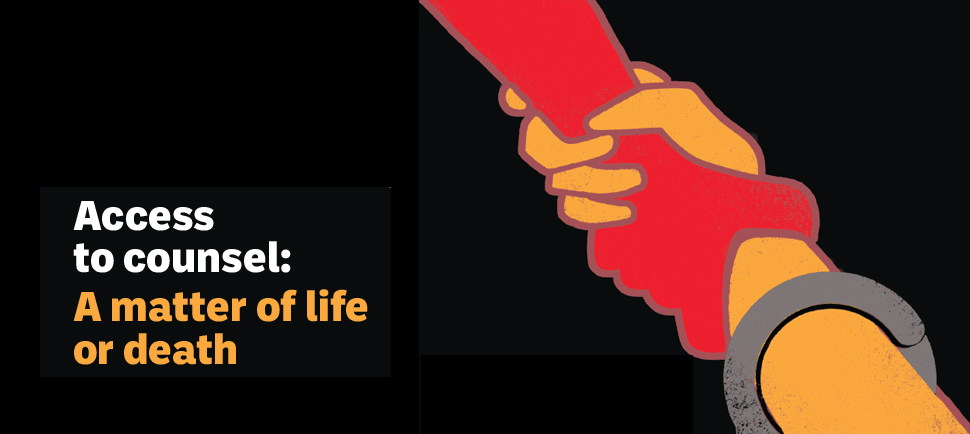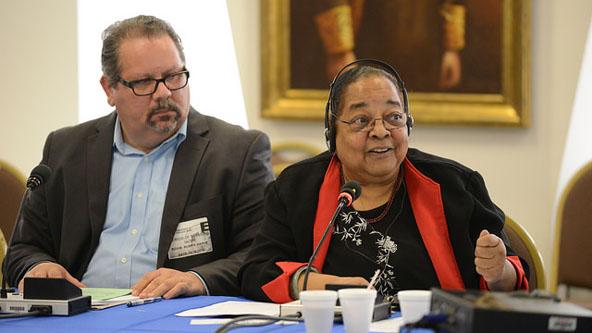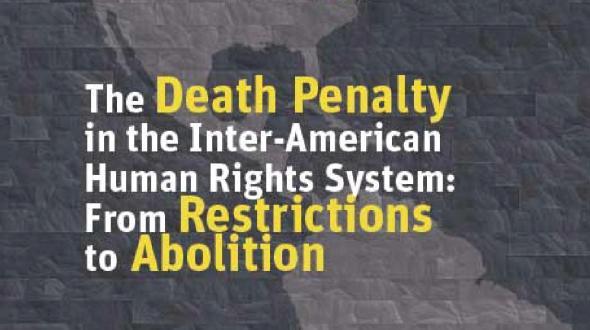All about Canada
8 element(s) found
Document(s)
The politics of abolition: Reframing the death penalty’s history in comparative perspective
By Carolyn Strange, Daniel Pascoe, and Andrew Novak, on 5 December 2024
2024
Academic Article
Warning: Undefined variable $liste_type_doc in /home/worldcoa/coalition2020/wp-content/themes/WCADP/template-parts/contents-document.php on line 21
Warning: Undefined variable $liste_pays in /home/worldcoa/coalition2020/wp-content/themes/WCADP/template-parts/contents-document.php on line 40
Canada
Warning: Undefined variable $liste_themes in /home/worldcoa/coalition2020/wp-content/themes/WCADP/template-parts/contents-document.php on line 35
Cruel, Inhuman and Degrading Treatment and Punishment
Mali
Mexico
Myanmar
Philippines
Trend Towards Abolition
United Kingdom
Warning: Undefined variable $tag_langue in /home/worldcoa/coalition2020/wp-content/themes/WCADP/template-parts/contents-document.php on line 85
More details See the document
Literature on opposition to the death penalty typically characterizes abolition as inexorable and attributes its fulfillment to the age of human rights. Although most countries abolished capital punishment after the Universal Declaration of Human Rights in 1948, this article uses three comparative case studies to demonstrate abolition’s entanglement with a broader range of political, legal, and cultural factors. Applying a historically grounded nonteleological approach, we offer three insights. First, civilizationist values drove abolitionism in countries in the “vanguard,” such as Canada and England/Wales, where human rights rationales were expressed well after abolition and as a mark of superiority. Second, death penalty abolition has often allied with decolonization and penal reform, but assertions of independence and sovereignty have periodically provoked reinstatement, as in Mexican and Philippine history, which underscores the fragility of abolition. Third, state-centric approaches to de jure and de facto abolition overlook the practice of extrajudicial and summary “rebel” executions in polities such as Myanmar and Mali, which lack a state monopoly on force. Further historical studies that do not presuppose a human rights explanation of abolition and that compare jurisdictions within as well as between the Global North and South will better grasp the death penalty’s complex history.
- Document type Academic Article
- Countries list Canada / Mali / Mexico / Myanmar / Philippines / United Kingdom
- Themes list Cruel, Inhuman and Degrading Treatment and Punishment / Trend Towards Abolition
Warning: Undefined variable $lien_langue in /home/worldcoa/coalition2020/wp-content/themes/WCADP/template-parts/contents-document.php on line 127

Article(s)
The 18th World Day Against the Death Penalty Highlights the Life-Saving Importance of Effective Legal Representation in Capital Cases
By Gia Tongson, on 18 November 2020
The 18th World Day Against the Death Penalty explored the theme “Access to Counsel: A Matter of Life or Death” in light of the continued execution of individuals who struggle to have adequate support from their lawyers, who consequently also face their own challenges in the judicial system. Having access to qualified and effective representation […]
2020
Australia
Belgium
Canada
Congo
Egypt
Fair Trial
France
Warning: Undefined variable $tmp in /home/worldcoa/coalition2020/wp-content/themes/WCADP/template-parts/contents.php on line 27
Kazakhstan
Philippines
Portugal
Uganda
Document(s)
The Last Verdict
By Jamie Arpin-Ricci, on 1 January 2016
2016
Book
Warning: Undefined variable $liste_type_doc in /home/worldcoa/coalition2020/wp-content/themes/WCADP/template-parts/contents-document.php on line 21
Warning: Undefined variable $liste_pays in /home/worldcoa/coalition2020/wp-content/themes/WCADP/template-parts/contents-document.php on line 40
Canada
Warning: Undefined variable $tag_langue in /home/worldcoa/coalition2020/wp-content/themes/WCADP/template-parts/contents-document.php on line 85
More details See the document
What would you do if your child was murdered?What would you do if your child was convicted of murder?Alice Goodman has known great loss. Since the brutal murder of her daughter Madeline decades earlier, she has tirelessly fought to see the killer pay for his crime. Now, after twenty years, the day has arrived that she will witness his long-delayed execution. Will justice finally be done? Will she finally find the peace that has long eluded to her?Lori Williams knows she was not the perfect mother, but she never believed her son Mark could be guilty of the crime that placed him on death row. Confronting every challenge along the way, she refused to give up her pursuit of the truth—a truth she believed would set her son free. Will it be enough?Both women are fighting for a justice they believe has been denied their children. Now, their lives are on a collision course with each other. Is either woman prepared for the truth?
- Document type Book
- Countries list Canada
Warning: Undefined variable $liste_themes in /home/worldcoa/coalition2020/wp-content/themes/WCADP/template-parts/contents-document.php on line 114
Warning: Undefined variable $liste_themes in /home/worldcoa/coalition2020/wp-content/themes/WCADP/template-parts/contents-document.php on line 121
- Themes list Right to life, Clemency, Death Penalty,
Warning: Undefined variable $lien_langue in /home/worldcoa/coalition2020/wp-content/themes/WCADP/template-parts/contents-document.php on line 127

Article(s)
Greater Caribbean for Life addresses Inter-American Commission on death penalty in their region
on 19 March 2015
On Monday, 16 March 2015, the Greater Caribbean for Life (GCL) addressed the Inter-American Commission on Human Rights (IACHR) on issues relating to the death penalty in the Greater Caribbean, during a dedicated thematic hearing held at the Organisation of American States (OAS) headquarters in Washington, D.C., USA.
2015
Antigua and Barbuda
Argentina
Bahamas
Barbados
Belize
Bolivia (Plurinational State of)
Brazil
Canada
Chile
Colombia
Costa Rica
Cuba
Dominica
Dominican Republic
Ecuador
El Salvador
Grenada
Guyana
Haiti
Honduras
Jamaica
Mexico
Nicaragua
Panama
Paraguay
Peru
Saint Kitts and Nevis
Saint Lucia
Saint Vincent and the Grenadines
Suriname
Trinidad and Tobago
United States
Uruguay
Venezuela (Bolivarian Republic of)

Article(s)
From restrictions to abolition
By World Coalition Against the Death Penalty, on 17 August 2012
The Inter-American Commission on Human Rights has published a new report and called for abolition of the death penalty.
2012
Antigua and Barbuda
Argentina
Bahamas
Barbados
Belize
Bolivia (Plurinational State of)
Brazil
Canada
Chile
Colombia
Costa Rica
Cuba
Dominica
Dominican Republic
Ecuador
El Salvador
Grenada
Guatemala
Guyana
Haiti
Honduras
Jamaica
Mexico
Nicaragua
Panama
Paraguay
Peru
Saint Kitts and Nevis
Saint Lucia
Saint Vincent and the Grenadines
Trinidad and Tobago
United States
Uruguay
Venezuela (Bolivarian Republic of)
Article(s)
World Coalition calls on Canada to keep up its efforts against the death penalty
on 10 March 2009
The World Coalition has sent a letter to Canadian Prime Minister Stephen Harper, asking him to “protect its nationals sentenced to death abroad, whether it is in a democratic country or not”.
2009
Canada
Canada
Clemency
United States
Article(s)
Flurry of initiatives against the death penalty at ACATs in the past year
on 7 August 2007
During the past year, the 28 member associations in the FIACAT network have given their abolitionist activities a boost. The issue of the death penalty is at the heart of their mission.
2007
Belgium
Burundi
Canada
Democratic Republic of the Congo
France
Luxembourg
Switzerland
United Kingdom
Document(s)
Showing Remorse: Reflections on the Gap between Expression and Attribution in Cases of Wrongful Conviction
By Richard Weisman / Canadian Journal of Criminology and Criminal Justice, on 1 January 2004
2004
Article
Warning: Undefined variable $liste_type_doc in /home/worldcoa/coalition2020/wp-content/themes/WCADP/template-parts/contents-document.php on line 21
Warning: Undefined variable $liste_pays in /home/worldcoa/coalition2020/wp-content/themes/WCADP/template-parts/contents-document.php on line 40
Canada
Warning: Undefined variable $tag_langue in /home/worldcoa/coalition2020/wp-content/themes/WCADP/template-parts/contents-document.php on line 85
More details See the document
This paper seeks first to show that persons who are convicted of crimes can be perceived as either remorseful or as lacking in remorse. This division establishes a moral hierarchy that has profound implications for the characterization and disposition of persons who are so designated. Second, using both Canadian and American cases, it looks at how inclusion in the category of the unremorseful affects the characterization and disposition of those who have been wrongfully convicted. Finally, it suggests that remorse is a major site of conflict between persons who are wrongfully convicted and officials within the criminal justice system, conflict that involves the use of institutional pressure to encourage the expression of remorse, on the one hand, and the mobilization of individual resources to resist those expressions.
- Document type Article
- Countries list Canada
Warning: Undefined variable $liste_themes in /home/worldcoa/coalition2020/wp-content/themes/WCADP/template-parts/contents-document.php on line 114
Warning: Undefined variable $liste_themes in /home/worldcoa/coalition2020/wp-content/themes/WCADP/template-parts/contents-document.php on line 121
- Themes list Networks,
Warning: Undefined variable $lien_langue in /home/worldcoa/coalition2020/wp-content/themes/WCADP/template-parts/contents-document.php on line 127
Australia
Abolitionist for all crimesDeath penalty legal status
CountriesBelgium
Abolitionist for all crimesDeath penalty legal status
CountriesCanada
Abolitionist for all crimesDeath penalty legal status
CountriesCongo
Abolitionist for all crimesDeath penalty legal status
CountriesEgypt
RetentionistDeath penalty legal status
CountriesFrance
Abolitionist for all crimesDeath penalty legal status
CountriesKazakhstan
Abolitionist for all crimesDeath penalty legal status
CountriesPhilippines
Abolitionist for all crimesDeath penalty legal status
CountriesPortugal
Abolitionist for all crimesDeath penalty legal status
CountriesUganda
RetentionistDeath penalty legal status
Countries
